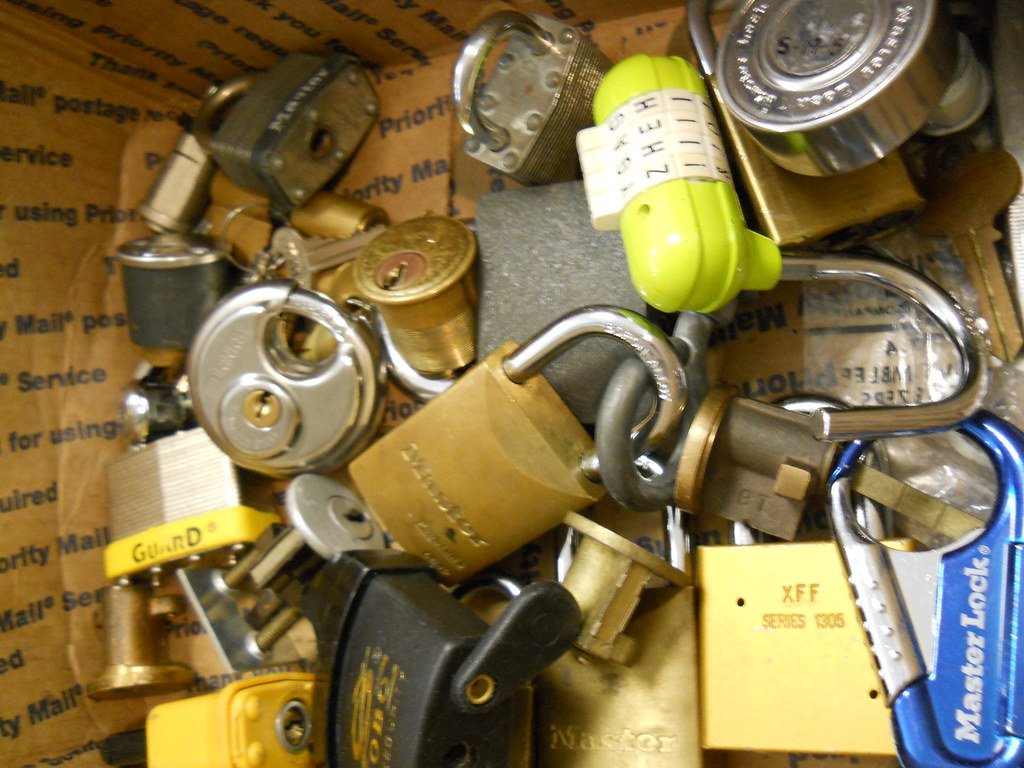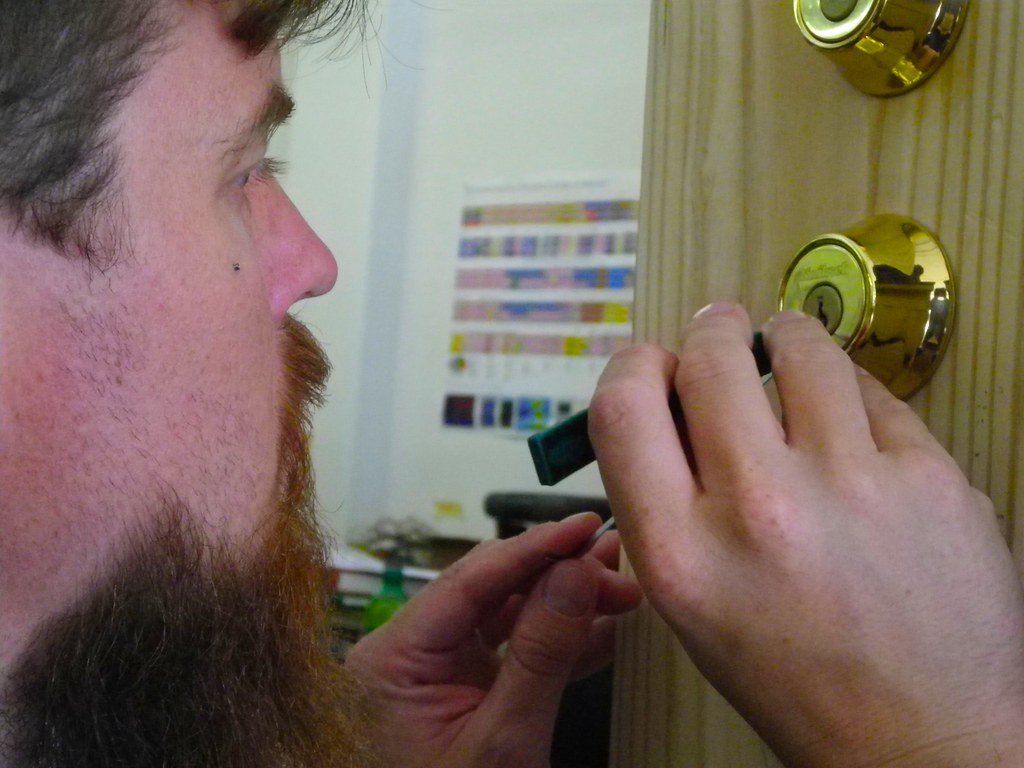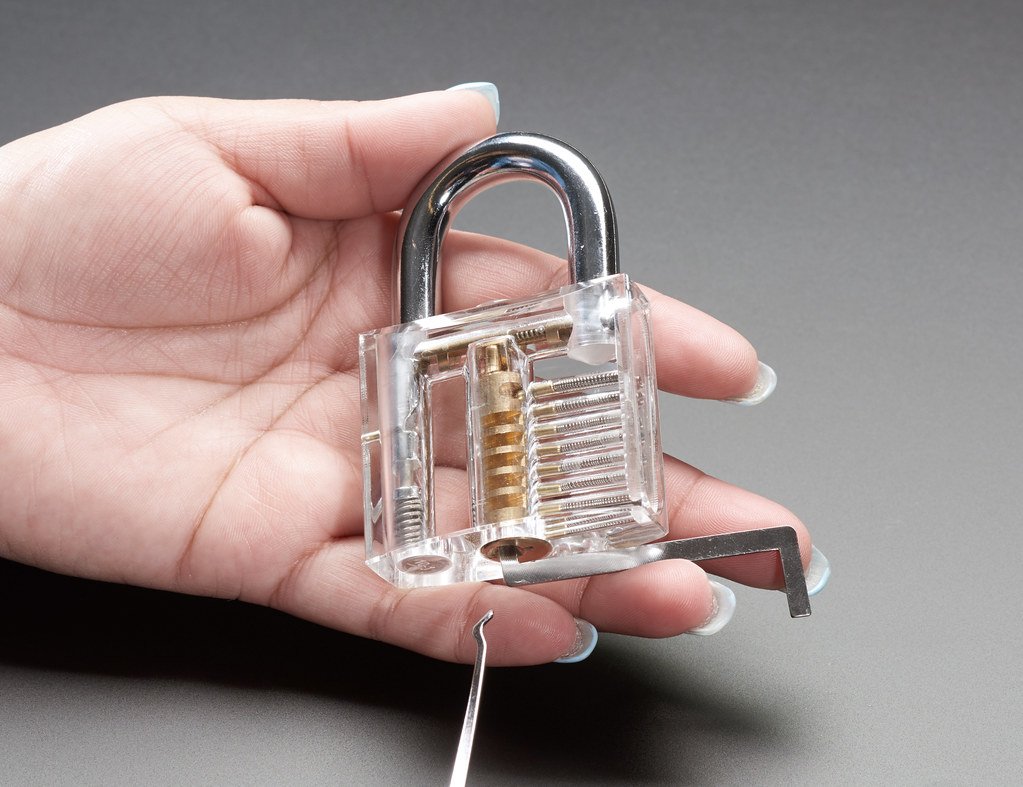So, you’ve found yourself in a world where the click of a delicate lock yields a fascinating rush of satisfaction. Perhaps you’re an avid locksmith, an adventurous hobbyist, or simply a curious enthusiast. Welcome to the captivating realm of locksport, where the art of picking locks merges with the thrill of exploring security systems. But amidst this exciting craft lies a complex web of ethical dilemmas. As a participant in the engaging world of locksport, you may face questions that demand careful consideration – where do we draw the line between a lawful pursuit and an illegal intent? How do we navigate the ethics of this fascinating subculture responsibly? In this article, we will delve into the intriguing intricacies of ethical dilemmas in locksport and explore strategies for handling them with finesse and integrity.
Table of Contents
- Exploring the Moral Dimensions of Locksport: Understanding Ethical Dilemmas within the Hobby
- Navigating the Gray Areas: Identifying Ethical Challenges in Locksport
- A Code of Conduct: Establishing Ethical Guidelines for Locksport Enthusiasts
- Safeguarding Integrity: Practical Strategies for Handling Ethical Dilemmas in Locksport
- Fostering Ethical Engagement: Promoting Responsible Locksport Practices for a Thriving Community
- Q&A
- To Conclude

Exploring the Moral Dimensions of Locksport: Understanding Ethical Dilemmas within the Hobby
Within the captivating world of locksport, where enthusiasts engage in the art of picking locks as a hobby, a complex web of moral dimensions quietly lurks beneath the surface. As with any hobby that involves pushing boundaries and exploring unconventional skills, ethical dilemmas can arise, raising questions about the limits of personal freedom, privacy, and responsibility.
The ethical considerations surrounding locksport can be categorized into several key aspects:
- 1. Legal and Regulatory Compliance: Locksport enthusiasts must navigate the murky waters of legality and ensure they operate within the boundaries of the law. Questions emerge regarding where the line lies between a harmless enthusiast and a potential criminal. Locksmiths, for example, may ponder if the knowledge gained through locksport should require licensing due to the potential misuse of their skills.
- 2. Personal Integrity and Intentions: While many individuals engage in locksport purely for the challenge and intellectual stimulation it provides, others may pursue it with less noble intentions. The community must grapple with distinguishing between those driven by curiosity and those who seek to exploit security vulnerabilities.
- 3. Ethical Disclosure and Vulnerability: With locksport comes the ability to expose weaknesses in security systems, raising questions about when and how vulnerabilities should be communicated. Should locksport enthusiasts disclose their findings to relevant authorities or manufacturers, or keep them within the community to promote skill development and awareness?
By considering these moral dimensions within locksport, enthusiasts can engage in a thoughtful and conscientious exploration of their hobby. It is through open dialogue, continuous education, and a shared commitment to ethical conduct that the locksport community can thrive while maintaining respect for the broader implications of their actions.

Navigating the Gray Areas: Identifying Ethical Challenges in Locksport
Locksport is a captivating activity that involves the study and manipulation of locks. While it is often seen as a hobby or a means for improving security, it also presents a number of ethical challenges that enthusiasts must grapple with. One of the main gray areas in locksport relates to the boundaries of legality. Some individuals may question the fine line between practicing locksport as a legitimate skill-building exercise and using their knowledge for malicious purposes.
To address ethical challenges in locksport, it is crucial to foster a culture of responsible behavior among enthusiasts. This includes acknowledging and adhering to legal restrictions in your jurisdiction. Additionally, promoting ethical guidelines within the locksport community can help raise awareness and facilitate discussions on critical topics. Some key areas to consider when navigating the gray areas of locksport ethics include consent, privacy, and the responsible handling of information.
Consent plays a central role in locksport ethics. It is important to always obtain clear and explicit permission before attempting to pick or bypass any lock, ensuring that you have the owner’s consent to practice your skills. Respecting personal privacy is equally important. Locksport practitioners should exercise caution when sharing information or techniques that could potentially compromise the security of others. Remember, responsible locksport practices prioritize the well-being of the community and aim to enhance security, rather than undermine it.
A Code of Conduct: Establishing Ethical Guidelines for Locksport Enthusiasts
Locksport, the art of picking locks for sport and educational purposes, is an exciting and challenging hobby that attracts enthusiasts from various backgrounds. As with any community, it is important for locksport enthusiasts to establish ethical guidelines that promote responsible and respectful behavior. By adhering to these guidelines, we can ensure a positive and inclusive environment for all participants.
When practicing lockpicking, it is crucial to always respect the law and individual rights. Do not engage in any activity that is illegal or unethical. Locksport should be used solely for educational purposes or with explicit consent from the owner of the lock. Remember, unauthorized lockpicking is against the law and can have severe consequences. Adhere to local regulations and seek appropriate permissions when necessary.
Respect and courtesy are paramount among locksport enthusiasts. Treat fellow practitioners with kindness, patience, and empathy, fostering an inclusive community. Listen and learn from one another’s experiences and perspectives. Engage in constructive discussions and avoid personal attacks or disrespectful behavior. Additionally, promote responsible sharing of knowledge and techniques, ensuring the preservation of the integrity of the locksport tradition.
- Strive for personal growth and development. Continuously enhance your skills and knowledge in locksport while being mindful of the ethical considerations. Embrace the spirit of learning and encourage others to do the same.
- Be responsible and accountable for your actions. Locksport enthusiasts should always prioritize safety and security, and never use their skills for malicious purposes. Stay honest, accountable, and be a positive representative of the locksport community.
- Give back to the community by sharing your expertise, organizing educational events, or volunteering your time. Help pass down the knowledge and passion for locksport to future generations. Together, we can build a vibrant and ethical locksport landscape.
By adopting and promoting this code of conduct, we can ensure that locksport remains a reputable and ethical hobby. Let us strive to uphold the highest standards of integrity and respect, fostering a supportive community for all locksport enthusiasts.

Safeguarding Integrity: Practical Strategies for Handling Ethical Dilemmas in Locksport
Practical Strategies for Handling Ethical Dilemmas in Locksport
When engaging in the captivating world of Locksport, it is crucial to maintain the utmost integrity and ethical standards. The responsibility lies with all practitioners to safeguard the authenticity and principles of the craft. Here are some practical tips to navigate through ethical dilemmas:
- Transparent Communication: Openly discuss any potential conflicts of interest or ethical concerns with fellow Locksport enthusiasts and practitioners. Honest and respectful dialogue fosters a community where issues can be addressed and resolved effectively.
- Consent and Respect: Obtain proper consent before practicing Locksport techniques on someone else’s property or possessions, emphasizing the importance of respecting personal boundaries. Always prioritize legality and adhere to local statutes to ensure the ethical nature of your activities.
- Educate and Advocate: Encourage others in the Locksport community to engage in ethical practices by sharing knowledge and resources. Promote the importance of responsible lockpicking, emphasizing the value of integrity, professional conduct, and proper education in this fascinating field.
By adhering to these practical strategies, Locksport enthusiasts can navigate ethical dilemmas with integrity and contribute to the positive growth and reputation of the Locksport community.
Fostering Ethical Engagement: Promoting Responsible Locksport Practices for a Thriving Community
Locksport is a fascinating hobby that allows enthusiasts to explore the world of locks and security systems. However, it is crucial to approach locksport with a strong ethical foundation and a commitment to responsible practices. By fostering ethical engagement within the locksport community, we can ensure a thriving and inclusive community that values knowledge, skill, and integrity.
One of the key principles of fostering ethical engagement in locksport is promoting responsible practices. This means always obtaining consent before attempting to pick a lock or bypass a security system. It is essential to respect the rights and privacy of others, and never engage in illegal or unethical activities. By adhering to responsible practices, we can build trust within the community and promote locksport as a legitimate and respected hobby.
Guidelines for Ethical Locksport Engagement:
- Obtain Consent: Always seek permission before attempting to pick a lock or bypass a security system. Respect the boundaries and rights of others.
- Responsible Sharing of Knowledge: Share knowledge and skills within the community responsibly and ethically. Avoid promoting or condoning illegal or harmful activities.
- Honoring Locksport Ethics: Embrace the principles of integrity, honesty, and responsibility. Act in a manner that upholds the positive reputation of the locksport community.
- Community Collaboration: Engage in collaborative efforts to promote responsible locksport practices. Share resources, techniques, and techniques and encourage others to do the same.
- Educating the Public: Take the opportunity to educate the public about locksport as a legitimate and ethical hobby. Dispel misconceptions and promote understanding.
Striving to foster ethical engagement in locksport creates a community built on respect, trust, and shared values. By promoting responsible practices, adhering to guidelines, and actively participating in ethical discussions, we can elevate the locksport community to new heights. Together, we can ensure a thriving and inclusive locksport community that fosters a sense of pride, integrity, and respect.
Q&A
How can someone new to locksport navigate ethical dilemmas with regard to the legality of the practice?
One way to handle ethical dilemmas in locksport is to first familiarize yourself with the laws and regulations surrounding lock picking in your jurisdiction. It is important to respect the boundaries set by the law and engage in locksport activities only where it is legal to do so.
What should I do if I come across a lock that may be part of a vital infrastructure or public safety system?
If you encounter a lock that seems to be part of a vital infrastructure or public safety system, it is crucial to report it immediately to the appropriate authorities. Maintain a responsible approach by prioritizing public safety and taking necessary actions to ensure the integrity and security of such systems.
Is it ethical to pick locks for the purpose of helping people who are locked out of their own property?
Unlocking a door for someone who is genuinely locked out of their property and has provided proof of ownership is a morally acceptable and commonly practiced aspect of locksport. However, it is important to always confirm ownership and obtain proper consent before assisting someone in unlocking their property.
How can I ensure that I am not inadvertently violating someone’s privacy while practicing locksport?
Respecting the privacy of others is essential in locksport. Avoid picking locks that are in use, as it is most likely an invasion of privacy. Conversely, using your skills to help people regain access to their own property or identifying vulnerabilities in the locks they use can be a constructive way to apply locksport knowledge without violating privacy.
What should I do if I find a lock with a security vulnerability that could potentially be exploited by criminals?
When you come across a lock that has a security vulnerability, it is recommended to disclose the vulnerability to the lock manufacturer or relevant authorities. Responsible disclosure helps protect the public and allows the issue to be addressed and resolved. Remember to act within legal boundaries and respect the interests of public safety.
What ethical considerations are important to keep in mind when participating in locksport competitions?
In locksport competitions, it is crucial to maintain a fair and level playing field. Avoid unethical practices, such as tampering with or sabotaging competitors’ locks. Good sportsmanship, honesty, and respect for the rules and fellow competitors should always be at the forefront of your mind when participating in locksport competitions.
To Conclude
In the ethereal whispers of lock tumblers, the world of locksmiths comes to life. The art of locksport, through its intricate techniques and captivating puzzles, engulfs enthusiasts in a thrilling dance of skill and ingenuity. Yet, with every endeavor, ethical dilemmas can emerge, tugging at the heartstrings of those immersed in this captivating realm.
As we waltzed through the labyrinth of ethical considerations within lock picking, our guide sought to illuminate the path towards responsible and honorable locksport. Each dilemma delicately dissected, inching closer towards insightful resolutions, we unfolded the profound layers that comprise this fascinating community.
With a tender acknowledgement, we recognized the fine line between lawful locksport and the potential for misuse. Our journey revealed the importance of promoting education, transparency, and accountability within this fascinating world of locks and keys. As we delicately handled the tangle of ethical dilemmas, we uncovered the essence of being a conscientious locksmith.
Ethical dilemmas, like cryptic lock combinations, challenge us to grow and seek higher moral grounds. They demand introspection, consideration, and a tender touch to navigate the intricate web they weave. Our shared exploration among these pages has heightened our senses and fortified our resolve to champion ethical conduct in locksport.
As we bid adieu to this intricate tapestry of words, we must keep in mind that ethical dilemmas, though demanding, present opportunities. Opportunities to foster trust, build bridges within the locksport community, and promote the noble pursuit of craftsmanship. It is, after all, the harmony between our deeds and our conscience that will shape the locksport legacy for generations to come.
So, as you find the final pages of this article slipping from your grasp, may these insights forever echo within your heart. May they spur you towards ethical reflections, and may they inspire you to be a beacon of integrity in the ever-turning lockpicking world.
For each ethical knot unraveled with wisdom and grace, the locksport community draws closer to a future where honor and morality thrive. Embrace the journey, dear locksport enthusiasts, for in the midst of ethical challenges lies the transformative power to redefine this captivating dance between locksmiths and the ethereal whispers of the locks they manipulate.
As an affiliate, my content may feature links to products I personally use and recommend. By taking action, like subscribing or making a purchase, you’ll be supporting my work and fueling my taco cravings at the same time. Win-win, right?
Want to read more? Check out our Affiliate Disclosure page.